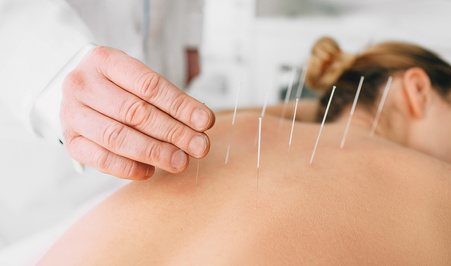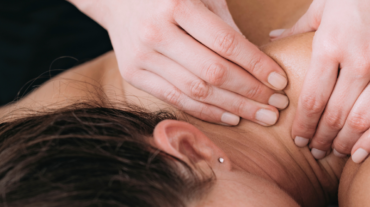Acupuncture Vs. Dry Needling
There has been a major shift in the western world in regards to what we define as “acupuncture” in the last decade or two, and in Ontario most especially since 2013 when acupuncture (finally) became a regulated health care profession. What has come about is essentially a divide that many people don’t even realize exists - that between what is still known exclusively as “acupuncture” and that which is known in some parts as “dry needling,” (and is also known as terms such as “myofascial trigger point needling” or “intramuscular stimulation.”) Often, the different approach to using acupuncture needles on a patient is simply still just called “acupuncture,” since educating one’s patient about the difference should be paramount, and hopefully often is.
At Yellow Gazebo we employ RTCMPs (registered traditional Chinese medicine practitioners) and RAcs (registered acupuncturists - basically the same TCM training as RTCMPs but without the extra year of herbal medicine training). We also employ chiropractors, physiotherapists and even massage therapists who use acupuncture as a modality along with their usual practice. These types of therapists are the ones who will employ what is otherwise referred to as dry needling - essentially they use acupuncture needles in areas that feel pain, and their objective is to release tension, improve blood flow, and in essence to help return the muscle to its regular working condition. And speaking as an RTCMP with over 15 years of experience in the field, I can tell you that they really aren’t doing anything “wrong.” Of course, many of my colleagues in North America would disagree with me, but I’ll explain their point of view momentarily.
The acupuncture that we RTCMPs and RAcs perform understandably comes from a different viewpoint. We who practice TCM see your body as a whole, so needling a specific point on your hand (i.e. one named “LI 4”) might be effective in treating hand pain but it also can relieve facial pain, boost the immune system in the appropriate stage of illness, and even induce labour. Note, however, that the ability of this point to work with maximum effectiveness is very much dependent on its application along with other paired points used at the same time on one’s body, and appropriately with how one’s pulse is manifesting at the time of treatment. What your pulse indicates on any given day is part of how a RTCMP or RAc achieves a diagnosis from which they can then choose the best possible acupuncture point prescription to treat you.
So you can see why some acupuncturists with extensive training might not want others practicing the modality when those people have knowledge in the craft that limits them to only treating specific muscles, and working from a different training background. Those practicing dry needling vs. “true” acupuncture do lack the knowledge and/or ability to treat the body as holistically and as profoundly with acupuncture as those of us trained in the Chinese medical approach, and perhaps there is some truth in the argument that maybe they should not be allowed to call what they do “acupuncture.” To me, the opportunity to educate a patient is what at the moment the general public in Ontario can most benefit from, and I hope that practitioners practicing dry needling will inform patients about the difference.
If you are considering trying acupuncture for something, make sure that you find out what kind of training the person you’re thinking of seeing has had. And if a practitioner suggests they try it on you, ask them about their training and be sure to ask as many questions as makes you feel comfortable. And then seek out others with different types of training and compare! There’s such a plethora of options in the paramedical world right now, and we should definitely be trying to make the most out of them.
Questions? Feel free to write me at richard@yellowgazeboclinic.com, or call us at 416-909-2334. Ready to book an appointment? Use the link below, and we’ll see you soon!









